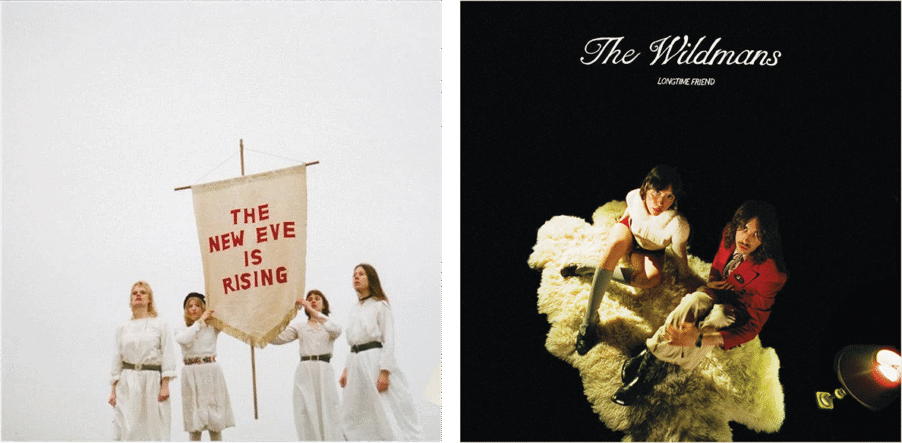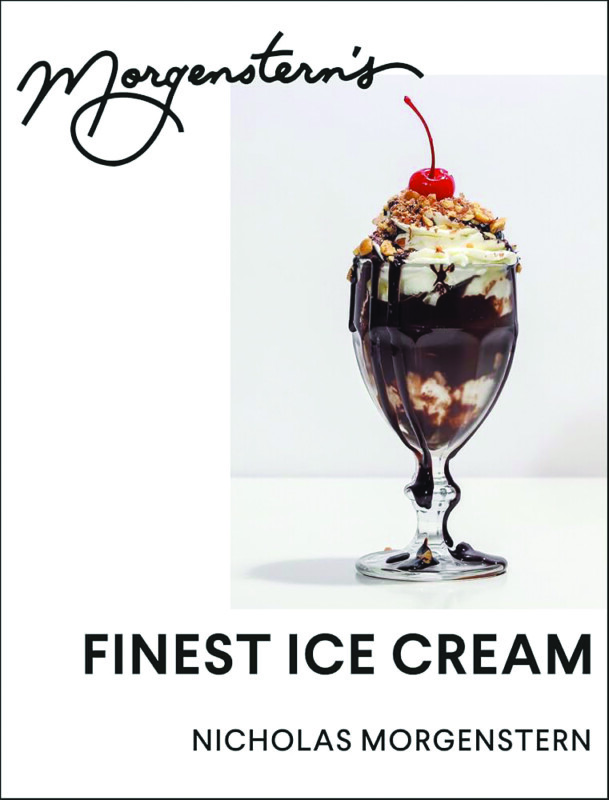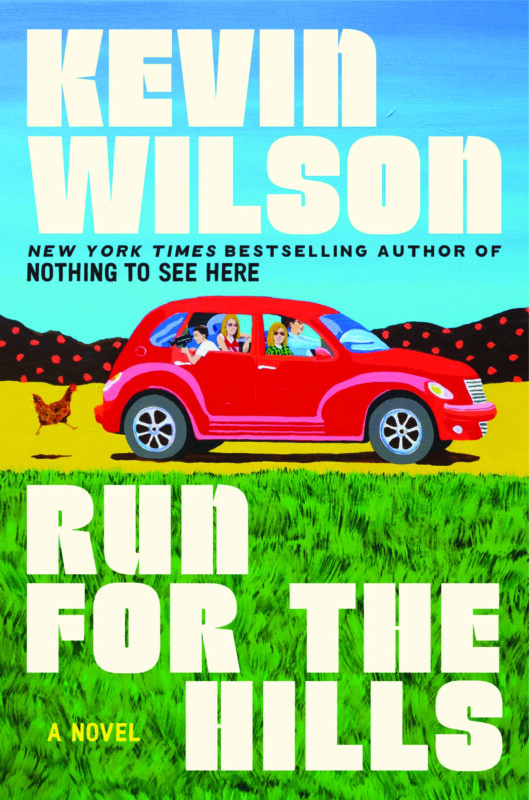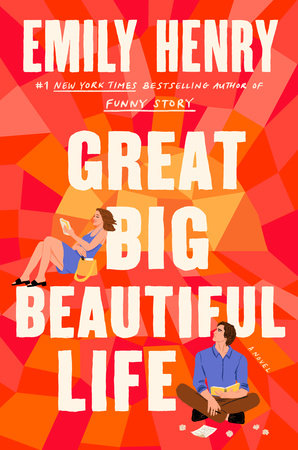The New Eves, The New Eve is Rising
Couple of advance singles from this U.K.-based all-female art-whatever band; I wanted to get to this before I forgot, not because the band’s upcoming (Aug. 1) full-length LP The New Eve Is Rising is a “who’s who”-level release, more of a “what the hell is that” that I think your super-awkward roommate should know about so she takes a break from talking to you. Weird, edgy recipe here: Visuals from the Flower Power era but with one foot firmly planted in The Blair Witch Project (seriously, go look); ritualistic, sometimes polyrhythmic chant-along tuneage that’s borderline tuneless unless you’re into Rasputina when she’s in certifiably crazy mode — I’m sure this stuff is inspired by some sort of goth-faire band or some such, but either way these girls are alright. The video for the flute- and Peavey-plugged guitar-driven “Rivers Run Red” looks like found footage of the Manson girls before they did their thing and it does fit, even their gobbling bowls of strawberries and dancing their pagan crook-leg summoning of Cthulhu or whatnot. “Highway Man” isn’t as nutty, more or less combining No Nos with Romeo Void. The Go-Go’s on acid is the bullet version. B
The Wildmans, “Highway Man”/”Rivers Run Red” (Transgressive Records)
I have a Twitter friend I absolutely adore, an Appalachian-bred woman who was adopted into a hilariously hardscrabble life and is nowadays chugging right along with a career in political knowledge work. She inspired me to take Appalachian folk music seriously, and it’s a genre I’ve come to like quite a bit, which brings us directly to this brother-sister act from the lush hills of a burg called Floyd, Virginia, population 449. They’re on the way up, having already shared stages with Bela Fleck, Billy Strings and Steep Canyon Rangers, not a bad resumé given that they’re in their early 20s. Guitarist/mandolinist Elisha has a Linda Ronstadt quality to her voice, a good match for these stubbornly country songs as well as the harmonizing of her fiddle-playing brother Aila, who won the 2018 Best All Around Performer award at the Galax Old Fiddlers Convention in their home state. Lots of depth and prettiness to be found here, primarily focused on balladry, I didn’t hear any cutting-loose here but there’s plenty of time. A
PLAYLIST
A seriously abridged compendium of recent and future CD releases
• Friday, June 20, will bring us, guess what, new albums, because that’s what Fridays do for us, whether we need new albums or not. The number of albums released by humans is now in the trillions of gorillions, but our appetite for new albums cannot ever be sated, because we instinctively know that a trillion monkeys putting out a trillion albums in the 2020s will, by anyone’s logic, eventually result in an album that’s just great and awesome without being derivative, and no, I’m not referring to Chappell Roan, because all she really did was gussy up top-drawer Madonna/TayTay-style tuneage with Ed Banger beats, which I told you people in February, but did you listen for yourselves to find out I’m right? Mind you, if you’re in a band and trying to write new songs, it’s almost impossible not to be the teensiest bit derivative; when I was putting out records with my own punk-metal band years ago, I tried to force-feed myself music that I wouldn’t have normally listened to in the hope that it’d somehow influence my punk-metal music, which is really how you should really approach songwriting if you have a serious band with record label interest (in case you didn’t know, that’s all Led Zeppelin did when they started, rip off Willie Dixon et al. songs from the early ’60s). At the time, a really old DJ dude had given me a big box of 45-rpm singles from the 1970s, including Kool & The Gang’s “Jungle Boogie” — this was before the tune became famous for its inclusion in the Pulp Fiction soundtrack — and I listened to that nonsense constantly, hoping that all that weird antique disco stuff would worm into my brain and influence my punk-metal songs and — oh, you guys don’t care about this, except for the serious musicians out there, you just want to hear about the latest news from totally derivative artists like Cardi B or Vanilla Ice or whatever you’re doing here, let me go look at the list and see if there’s anything that isn’t horribly derivative and/or generally stupid, fat chance, let me look. OK, here we go, let’s start with the three sisters who comprise the soft-rock band Haim, and I’ll try not to ruin everything by mentioning that they’re basically the Zoomer version of Fleetwood Mac, because they don’t like when people do that, so stop thinking about Fleetwood Mac you guys, come on. Their new LP is called I Quit and features the fun little single “Down To Be Wrong,” which totally doesn’t sound like Fleetwood Mac at all except for the Lindsay Buckingham guitar parts, the carefully sculpted ’70s harmonies, and the subtle country-pop aroma to it that you only detect on Fleetwood Mac songs, look, just forget it, I need you guys to knock it off right this minute.
• English alt-rock singer Yungblud claims to have been “diagnosed with ADHD at a young age,” but in my opinion ADHD is a sign of normality in our TikTok world. His new album Idols is here and starts with “Lovesick Lullaby,” a cross between Eminem and Blur. It’s very cool and totally completely a derivative mashup, let’s move on.
• Straight-laced pop-rocker Benson Boone wisely left the 2021 American Idol competition before the show’s vapid judge-monsters voted him out for sounding like a lame version of Billy Squier. American Heart, his new album, spotlights “Young American Heart,” a tune that evinces his talent for totally not ripping off Bryan Adams, OK, it does, but that’s fine by me, next.
• Lastly, like any band that’s on Third Man Records, New York City’s Hotline TNT has a story about the time hamburger-addict Jack White decided to sign them. Their forthcoming full-length Raspberry Moon includes “Julia’s War,” which takes their usual shoegaze-ish formula and retrofits it with Foo Fighters-ness. Real dumb video, but hey.






